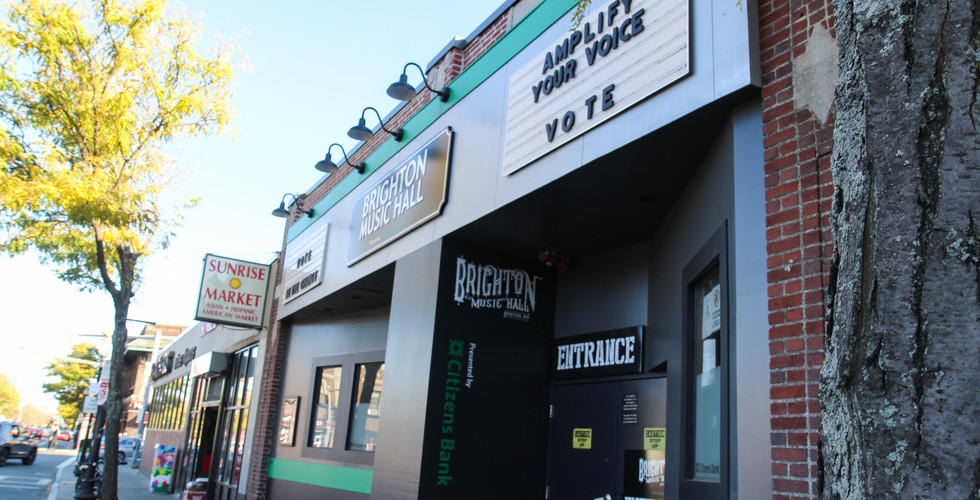Boston's Pandemic-Ravaged Venue Landscape
- Erin Christie
- Oct 1, 2020
- 3 min read
Updated: Dec 14, 2020
By Erin Christie
Since the pandemic swept the globe, the music industry has faced a great deal of stressors, namely due to the fact that touring is at a standstill for the time being. Without artists to pack their rooms, live music venues have been completely empty for the past few months, and with the loss of revenue that has resulted in, many independent venues are in danger of closing. In Boston, this reality is all-too-real, given that one of the city's hallmark musical staples, Great Scott, was forced to close in April (not without community outcry).
Below, you can find a gallery depicting how Boston's venues have been faring since the pandemic began, in contrast to how they were functioning when the pandemic wasn't a factor and live shows could take place last year.
Great Scott
The words “Allston is Dead” have decorated a powerbox outside the former legendary Boston rock institution, Great Scott, for the past few months, having been spray-painted there shortly after the announcement of the venue’s permanent closing earlier this year.
Nowadays, you can’t find a pack of cigarette smokers, huddled on the front porch in between sets, chatting away amidst the sound of the T, intermittently screeching to a halt at the Harvard Ave Green Line stop. The venue’s historic awning, weathered from years of sitting overhead, has been removed. You can no longer hear the sound of a pulsing kickdrum, or a roaring crowd, sloshing around on the beer-soaked floor.
When you look at 1222 Commonwealth Ave today, something automatically feels off, something feels missing, and that’s because something certainly is.
The Sinclair
Elsewhere, Cambridge’s The Sinclair housed Chicago band Twin Peaks for two sets in one evening on December 8, 2019. Months later, the venue sits, frozen in time.
Since the pandemic, the excessively long staircase reaching toward the door of the venue hasn’t been lined with concertgoers, or anyone, for that matter. The front room inside, usually littered with groups, partaking in bevs at the bar, buying merch, or gulping down water between moshing sessions at the stage, is completely empty. The stage hasn’t seen a visiting artist talking about their trip to the prestigious Harvard University down the street in months. It's a devastating sight to behold.
Paradise Rock Club
For most Boston concertgoers, Paradise Rock Club is easily regarded as one of the more visually-challenging venues to visit: if you’re not positioned in a strategic location, so as to avoid the huge visual blockades presented by the support beams in the middle of the standing-room floor, you might just spend the entire gig attempting to see the stage clearly for just a moment. Despite the hassle, since the pandemic has taken the opportunity to attend any live shows in general hostage, spending an evening doing just that sounds like the most appealing thing in the world.
The Royale
From time to time, The Royale, what is described as a “spacious multilevel club,” was privy to hosting live concerts, where, under the ballroom’s crystal chandeliers and marble crownings, sweaty crowds could engage in general roughhousing. One of such outings was a sold out gig for Bristol, UK’s post-punk group, IDLES, last October.
That night, however, is a memory long gone. Now, the venue hasn’t seen a rave, nor a hardcore concert, in months. The wing of Tufts Medical Center across the street, however, has seen enough action for both buildings combined since the pandemic’s reign began.
Brighton Music Hall
Nestled in between an independent market and a local restaurant on the corner of Harvard and Brighton Ave, Brighton Music Hall sits, dormant, like the rest of Boston’s live music venues. The standing-room-only space—previously home to evenings spent listening to ambient, acoustic serenades (like those Chastity Belt provided last October) or getting pinned against the barricade and kicked in the head by crowd surfers—has laid barren for months. Sadly, it might stay that way for the foreseeable future.





















Comments